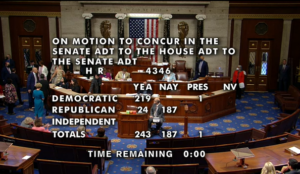
The House on Thursday voted to pass a $280 billion bill package that includes $52.7 billion to bolster domestic semiconductor manufacturing capacity and $200 billion for science and technology efforts aimed at improving competition with China, sending the bill to President Biden’s desk for final signature. The lower chamber voted 243-187-1 in favor of the CHIPS and Science Act, which included the support of 24 Republican members. Thursday’s vote followed the Senate’s 64 to 33 vote on Wednesday to approve…

 By
By 











